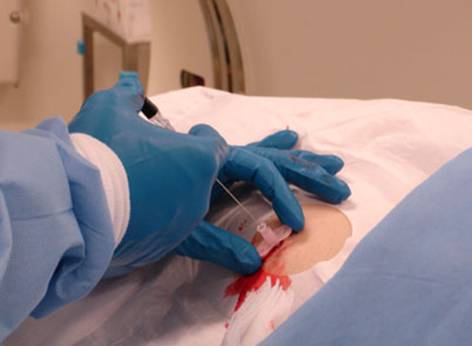Another Therapy Widely Used But Never Proven
Every year hundreds of thousands of people undergo steroid injections into their epidural space to relieve the pain from back and neck. The injections cost insurance companies millions of dollars, and yet they have never proven to be effective or safe in any clinical trail that the FDA has reviewed. There are people and doctors who “swear” by this therapy, and yet, there is not proper study that shows steroids have a benefit for back or neck pain.

Injectable corticosteroids are commonly used to reduce swelling or inflammation. Injecting corticosteroids into the epidural space of the spine has been a widespread practice for many decades; however, the effectiveness and safety of the drugs for this use have not been established, and FDA has not approved corticosteroids for such use. – from the FDA website
New Severe Side Effect Warning by the FDA
But there are new warnings that the FDA has added, which are rare:
“Serious adverse events included death, spinal cord infarction, paraplegia, quadriplegia, cortical blindness, stroke, seizures, nerve injury, and brain edema.”
When the presitigous Cochrane Database looked at injection therapy for subacute and chronic benign low-back pain their conclusion was stunning “Convincing evidence is lacking on the effects of injection therapies for low back pain. There is a need for more, well designed explanatory trials in this field.” And from another Cochrane review “Based on these results, the review authors concluded that there is no strong evidence for or against the use of any type of injection therapy for individuals with subacute or chronic low-back pain. ”
– See more at: http://summaries.cochrane.org/CD001824/injection-therapy-for-subacute-and-chronic-low-back-pain#sthash.agBKrmBy.dpuf
Off-Label Use
The use of epidural steroids is an off-label use, meaning it has not been approved by the FDA, and yet it is common with pain centers now popping up in many strip malls like convenience stores. Entire hospital systems are based on chronic and acute back pain.
In Contrast: Epidural Anesthesia Does Work
The use of epidural anesthesia for major surgery works well. There is a great body of evidence how the use of injectable local anesthetics into the epidural space may be a better form of anesthesia than general anesthesia in some cases. It was the assumption that if epidural pain relief could be used for the acute pain of surgery, then perhaps it could be used for chronic back pain. The second assumption was that if steroids could be used to reduce inflammation, perhaps they would be better given locally. Although steroids for back pain, acute or chronic, have no evidence of efficacy.
We need studies before Reimbursement for Off-Label Uses
Evidence based medicine with proper studies showing that this is effective is lacking.
To report problems with epidural injections of corticosteroids, contact MedWatch, the FDA’s safety information and adverse event reporting program, by telephone at 1-800-FDA-1088; by fax at 1-800-FDA-0178; online at https://www.accessdata.fda.gov/scripts/medwatch/medwatch-online.htm; with postage-paid FDA form 3500, available at http://www.fda.gov/MedWatch/getforms.htm; or by mail to MedWatch, 5600 Fishers Lane, Rockville, Maryland 20852-9787.

References:
Food And Drug Administration Website: http://www.fda.gov/Drugs/DrugSafety/ucm394280.htm
Cochrane Database Syst Rev. 2007 Jul 18;(2):CD001824. Pub Med ID : 17636686
http://summaries.cochrane.org/CD001824/injection-therapy-for-subacute-and-chronic-low-back-pain
